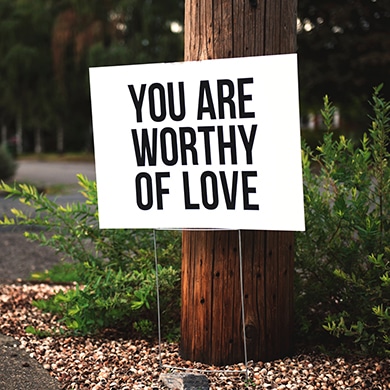

A lot of attention is devoted to the destructive relationships you can have with significant others. However, the truth is that a negative friendship can cause just as much damage. Certain friends can be just as abusive as lovers. As you may know from experience, destructive friendships can ruin self-esteem, break hearts and lead to painful isolation.
But what exactly does a healthy friendship look like, and what do you do when you realize that your current dynamic doesn’t meet these standards?
It can be incredibly difficult to sever ties with someone you care about, even when they’ve hurt you very deeply. This guide will help you to identify toxic friendships and bring them to an appropriate conclusion. First, we’ll explore unhealthy friendship characteristics so that you can compare them to your own dynamics. Then, we’ll move on to look at how to end an unhealthy friendship and move on to something better.
So, you have a friendship that’s making you uncomfortable or unhappy in some way, and you want to know if this is just part and parcel of a close relationship or if you’re stuck in a negative cycle. To check with toxicity, look out for the following signs of an unhealthy friendship. If you recognize more than just a handful, chances are high that you have a destructive bond with someone. You can also use these to help yourself answer the question “Am I a toxic friend?”.
Getting rid of toxic friends can be a real challenge and can bring up some intense emotions. After all, you might reason that this person is good for you some of the time, or that you share a rich history together.
In addition, you might worry about what they’ll do if you separate yourself from them; you might be aware that you’re likely to take them back into your life if they apologize.
Further, you are bound to have worries about a shared social circle. In this way, you might also be anxious about how to avoid creating similarly toxic friendships in the future.
Now that you’ve familiarized yourself with the main toxic friendship symptoms, let’s look at how to end a toxic friendship. As you’ll see, the trick is to have a clear plan for what you’re doing, why you’re doing it, what you’ll say and how you’ll strengthen your resolve to sever ties.
The first step in ending an unhealthy friendship is to come to terms with the fact that it’s the right thing to do. You can help yourself to move past feelings of ambivalence and indecision by asking some tough questions about the nature of the friendship.

For example, take another look at the above signs of toxic friendship that you just identified in your own life. Do you really want to have a friend who deliberately holds you back from being your best self? What opportunities in work, life, and other areas might you be able to enjoy if this person wasn’t trying to limit you?
Similarly, ask yourself what you are actually getting from this dynamic. Maybe you laugh with this person sometimes, but when balanced against hurt, disappointment or cruelty it’s obvious that the costs outweigh the benefits. It can also be helpful to contrast this friendship with ones in which you’ve genuinely thrived.
P.S. If you need a helping hand in boosting your self-confidence, be sure to download your copy of ‘Affirmation Sensation‘ to awaken your mind for positive change.
Given the unhealthy power dynamic that exists in toxic friendships, you might feel anxious or even scared of the inevitable confrontation you will have to have. This is why stage two of ending a friendship, forming a script, is absolutely essential for building confidence and working towards closure.
The best way to approach writing this script is to let all your thoughts out first. Write without filtering, allowing all thoughts and emotions to come through. Not all of this will be appropriate or useful to pass on when talking to your friend, so look at your words and pick out phrases and themes that you do want to communicate.
Next, work them into a more carefully written speech. Practice this in front of the mirror a few times, making changes as you see fit. Do your best to have most of your words memorized by the time you speak to the person.

If you’re like most people, this won’t be your first toxic friendship. It’s likely that you have a pattern of getting involved in unhealthy dynamics, and now is the perfect time to explore why that is (as well as how to change it).
Look at your history, and think of as many unhealthy relationships as you remember, then consider the common denominators. For example, you might see that you are often attracted to charismatic, controlling people because it absolves you of the responsibility for making decisions. Alternatively, you might realize that you learned in early life that it was your “job” to meet everyone’s needs; not to prioritize or consider your own.
While you will still need to do work to avoid getting into toxic friendships again in the future, simply being aware of your patterns can do a lot to prevent you from repeating them. In some cases, psychotherapy can also be useful here.
Like a romantic breakup, a friendship breakup can be incredibly messy if you don’t approach it in a clear way. This means that part of your aforementioned script has to involve being fully transparent about the boundaries you are putting in place. No matter how uncomfortable or painful it feels, you need to find a way to say that the friendship is ending; you don’t want to spend any more time together, and you won’t be staying in touch.
It may be tempting to throw blame around at this point or to get sucked into a horrible argument about the post. To minimize the chances of this, make sure you use “I” statements. Instead of saying “You’ve been an awful friend!” say something like “I feel this friendship is no longer working for me the way it used to” or “I’ve found our interactions increasingly negative or difficult, and I think we’re better off going our separate ways.”
Finally, remember that it’s harder than ever before to properly distance ourselves from other people. It will be easy, and often tempting, for you to keep tabs on your former friend through social networking sites. Likewise, your ex-friend could easily end up sending you a message either asking you for another chance or outright abusing you.
Now that you’ve set boundaries with this person, reinforce them by cutting ties online as well. This should not only involve actions like unfriending or unfollowing; blocking your former friend is the cleanest, most effective way to remove them from your life. Remember to block their email address as well as social networking sites, and consider simply ignoring any messages that other people try to pass on from this person.
While it’s normal to experience feelings of loss, regret and even guilt, remember that you’re breaking up with this friend for a very good reason. In time, it will be increasingly obvious that you are better off.
